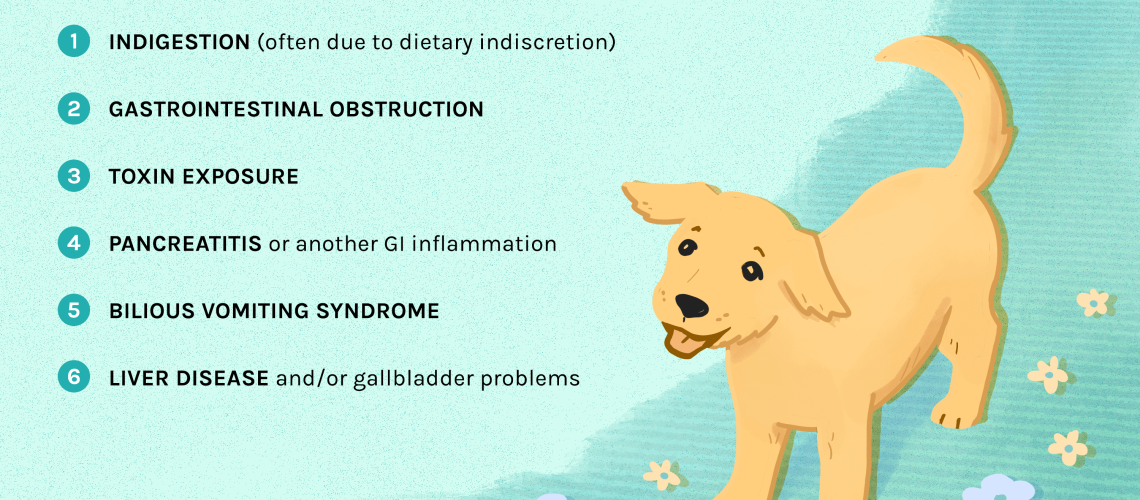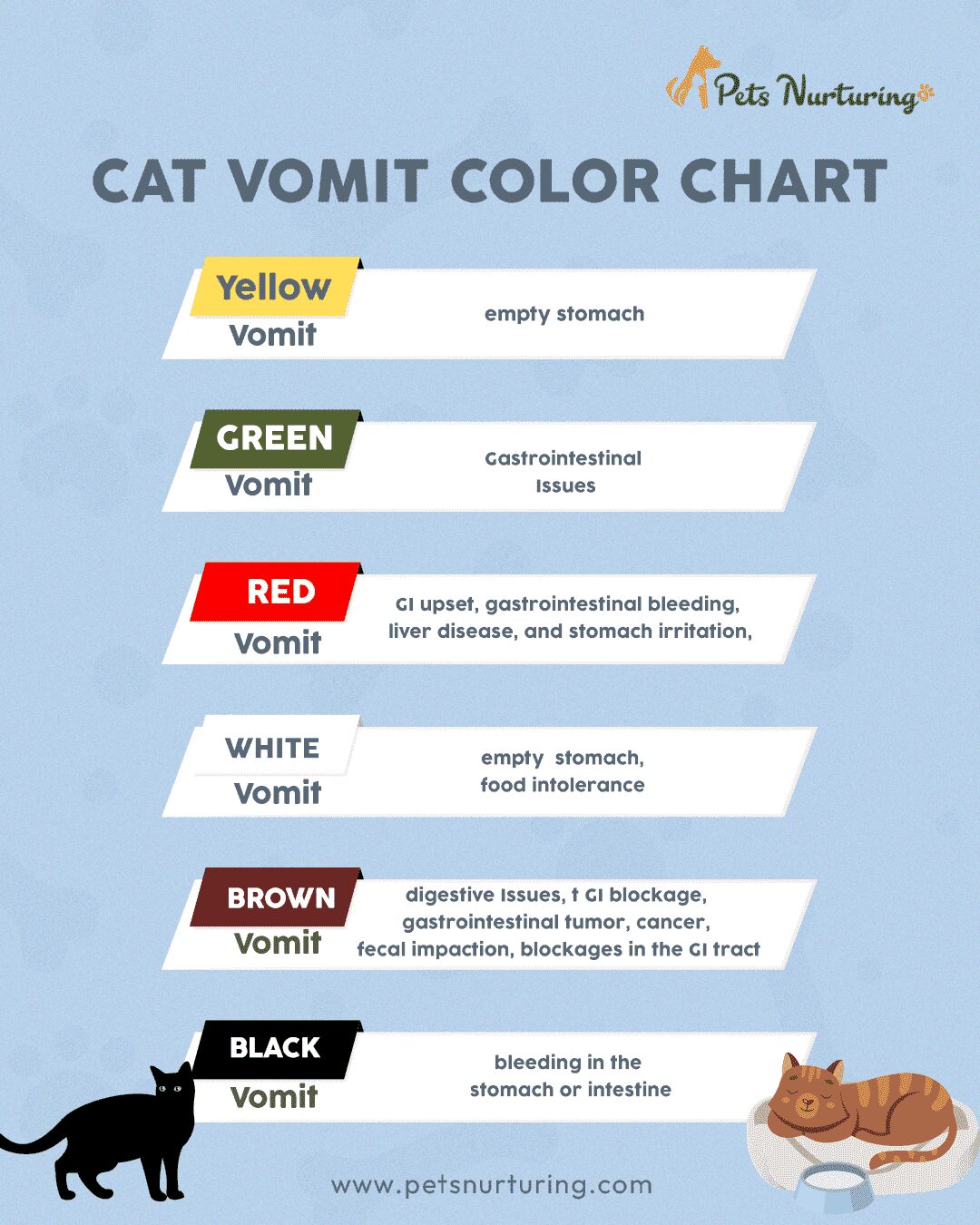Key Takeaways:
-
1. Bilious vomiting syndrome is a common condition in dogs characterized by recurrent episodes of vomiting bile.
2. This syndrome typically occurs in the early morning or after a prolonged period without food, as the build-up of bile irritates the stomach lining.
3. Symptoms of bilious vomiting syndrome include yellow or green vomit, loss of appetite, and occasional discomfort.
4. Treatment often involves feeding smaller, more frequent meals throughout the day to prevent the accumulation of bile and reduce stomach irritation.
5. If symptoms persist or worsen despite dietary changes, it is important to consult a veterinarian for further evaluation and potential additional treatment options.
Are you a dog owner who wants to ensure the health and well-being of your furry friend? If so, understanding Bilious Vomiting Syndrome in dogs is essential. This common condition can cause discomfort and distress for our beloved pets, but by delving into this topic, we can uncover valuable insights on how to prevent and manage it effectively. Imagine being able to provide relief for your dog and minimize their suffering. In this article, we will explore the ins and outs of Bilious Vomiting Syndrome in dogs, shedding light on its causes, symptoms, and potential treatments. By the end of this read, you'll be equipped with the knowledge needed to keep your four-legged companion happy and healthy. So let's dive in!
Understanding Bilious Vomiting Syndrome in Dogs
Bilious Vomiting Syndrome is a condition that affects dogs and causes them to vomit bile. Bile is a yellowish-green fluid produced by the liver and stored in the gallbladder. It helps with digestion by breaking down fats in the food we eat. In normal circumstances, bile flows from the gallbladder into the small intestine to aid in digestion. However, in some dogs, this process can be disrupted, leading to the accumulation of bile in the stomach.
When there is too much bile in the stomach, it can irritate the stomach lining and cause vomiting. This usually happens when a dog's stomach is empty for an extended period, such as overnight or between meals. The exact cause of Bilious Vomiting Syndrome is not fully understood, but it may be related to factors like delayed gastric emptying or an overproduction of bile.
What Happens During Bilious Vomiting Syndrome?
During an episode of bilious vomiting syndrome, a dog will typically vomit a yellowish or greenish fluid that has a bitter taste due to the presence of bile. The vomit may also contain foam or mucus. Dogs with this condition often experience these episodes early in the morning before they have eaten anything.
Why Is Bilious Vomiting Syndrome a Concern?
While occasional episodes of bilious vomiting syndrome may not be harmful to your dog's overall health, frequent or severe episodes can lead to dehydration and weight loss if left untreated. If your dog continues to vomit bile regularly, it's essential to seek veterinary care for proper diagnosis and management.
Effects of Bilious Vomiting Syndrome on Dogs: What You Need to Know
Bilious Vomiting Syndrome (BVS) is a condition that affects dogs and can have various effects on their overall health. When a dog experiences BVS, it often leads to frequent episodes of vomiting, usually occurring in the morning or when the stomach is empty for an extended period. These episodes can be distressing for both the dog and its owner. The repeated vomiting can cause dehydration, weight loss, and malnutrition in dogs if left untreated. Additionally, dogs with BVS may exhibit signs of discomfort, such as abdominal pain or restlessness.
The Role of Stomach Acids
One of the primary causes of BVS in dogs is an imbalance in stomach acids. Normally, stomach acids aid in digestion by breaking down food particles. However, when there is an excessive build-up of these acids due to delayed gastric emptying or other underlying factors, it can lead to irritation and inflammation of the stomach lining. This irritation triggers the vomiting reflex and results in bilious vomit.
Impact on Daily Life
The effects of BVS can significantly impact a dog's daily life. Dogs suffering from this syndrome may experience decreased appetite due to nausea caused by frequent vomiting episodes. This can lead to weight loss and a lack of energy. Furthermore, the constant need for cleaning up vomit can be emotionally draining for pet owners and may cause stress for both the dog and its human companion.
Recognizing the Symptoms of Bilious Vomiting Syndrome in Dogs
Identifying the symptoms associated with Bilious Vomiting Syndrome (BVS) is crucial for early detection and proper management. While each dog may exhibit slightly different signs, there are common indicators that pet owners should be aware of.
Frequent Morning Vomiting
One of the primary symptoms of BVS is frequent vomiting, particularly in the morning or when the dog's stomach is empty for an extended period. The vomit may contain yellow or greenish bile, indicating the presence of stomach acids. It is essential to differentiate between BVS and other causes of vomiting, such as dietary indiscretion or gastrointestinal infections.
Loss of Appetite
Dogs with BVS may also experience a loss of appetite due to nausea caused by repeated vomiting episodes. They may show disinterest in their regular meals or exhibit reluctance to eat altogether. This can lead to weight loss and further exacerbate their overall health condition.
Other Possible Symptoms
In some cases, dogs with BVS may display additional symptoms such as abdominal discomfort, restlessness, excessive drooling, or increased thirst. These signs can vary depending on the severity of the condition and individual differences among dogs.
Are Certain Dog Breeds More Prone to Bilious Vomiting Syndrome?
While Bilious Vomiting Syndrome (BVS) can affect any dog breed, certain breeds are more prone to developing this condition. It is important for pet owners to be aware if their dog belongs to one of these susceptible breeds.
Predisposed Breeds
Breeds such as Bulldogs, Boxers, Dachshunds, and Miniature Schnauzers have been found to have a higher incidence of BVS compared to others. This could be due to genetic factors or anatomical characteristics that make them more susceptible to stomach acid imbalances and delayed gastric emptying.
Anatomical Considerations
Some breeds with brachycephalic (short-nosed) features like Bulldogs are more prone to developing BVS because their unique anatomy can contribute to difficulties in proper digestion and gastric motility. Additionally, breeds with a deep chest, such as Dachshunds, may also be at a higher risk due to potential issues with the esophagus and stomach positioning.
Diagnosing Bilious Vomiting Syndrome in Dogs: How Veterinarians Can Help
Accurate diagnosis of Bilious Vomiting Syndrome (BVS) is crucial to ensure appropriate treatment and management. Veterinarians play a vital role in identifying and confirming the presence of BVS in dogs through various diagnostic methods.
Medical History Evaluation
During an initial consultation, veterinarians will conduct a thorough evaluation of the dog's medical history. They will inquire about the frequency and characteristics of vomiting episodes, changes in appetite or behavior, and any other relevant information that can help establish a diagnosis.
Physical Examination
A physical examination is essential to rule out other potential causes of vomiting and assess the overall health of the dog. The veterinarian will palpate the abdomen for any abnormalities or signs of discomfort. They may also check for dehydration or weight loss, which are common consequences of BVS.
Additional Diagnostic Tests
In some cases, additional diagnostic tests may be necessary to confirm BVS and rule out other underlying conditions. These tests may include blood work to evaluate organ function, imaging studies such as X-rays or ultrasounds to assess the gastrointestinal tract, or even endoscopy to directly visualize the stomach lining.
Treatment Options for Managing Bilious Vomiting Syndrome in Dogs
Managing Bilious Vomiting Syndrome (BVS) involves a combination of lifestyle modifications and medical interventions tailored to each dog's specific needs. Treatment aims to reduce vomiting episodes, alleviate symptoms, and improve overall well-being.
Dietary Adjustments
One key aspect of managing BVS is making dietary adjustments. Veterinarians may recommend feeding smaller, more frequent meals throughout the day to prevent the dog's stomach from becoming empty for extended periods. Switching to a low-fat and easily digestible diet can also help reduce stomach acid production and minimize irritation.
Medications
In some cases, veterinarians may prescribe medications to manage BVS symptoms. These can include antacids or acid-reducing medications to decrease stomach acid production, antiemetics to control nausea and vomiting, or prokinetic drugs that enhance gastric motility.
Lifestyle Changes
Alongside dietary adjustments and medication, certain lifestyle changes can contribute to managing BVS effectively. Providing a calm and stress-free environment for the dog can help reduce anxiety, which may be a trigger for vomiting episodes. Regular exercise and maintaining a healthy weight are also essential in promoting proper digestion and overall gastrointestinal health.
By understanding the effects of BVS, recognizing its symptoms, identifying breed predispositions, diagnosing accurately, and implementing appropriate treatment options, pet owners can ensure their dogs receive the necessary care to manage this condition effectively.
In conclusion, Bilious Vomiting Syndrome is a condition that can affect dogs and cause them to vomit yellowish fluid in the morning. It is important for dog owners to recognize the symptoms and seek veterinary care to help manage this syndrome and improve their pet's overall health.
How do you treat bilious vomiting syndrome in dogs?
What are the treatment options for bilious vomiting syndrome? There are two primary treatments for BVS: dietary interventions such as delaying dinner, providing a snack before bedtime, or feeding a food that takes longer to digest (such as protein) to prevent the stomach from being empty overnight.
What are the symptoms of bilious vomiting syndrome in dogs?
The primary indication of bilious vomiting syndrome in dogs is frequent vomit consisting of clear, foamy, or yellowish liquid, even though the dog is otherwise healthy and able to digest food and water normally. Some dogs with this condition may also experience a lot of gurgling sounds in their stomach.
What do you feed a dog with bilious vomiting syndrome?
To soothe a dog's upset stomach, owners can feed them a simple combination of chicken and rice for a few meals. This will allow their digestive system to settle down.
What causes bilious vomiting in dogs?
The cause of bilious vomiting syndrome in dogs is not fully understood. The most commonly proposed explanation is that there is a problem with the normal contractions of the gastrointestinal tract that typically occur in between meals.
What is the home remedy for bile vomiting in dog?
You can attempt to soothe her stomach by feeding her a simple diet consisting of boiled white chicken and boiled white rice for a couple of days. If she continues to vomit or shows signs of lethargy, it is important to bring her to the vet immediately.
What is the most common cause of bilious vomiting?
Bilious vomiting occurs when there is a blockage in the digestive system that prevents bile from passing through normally. This is often a sign of obstruction. In newborns and young infants, one common cause is duodenal atresia, which is a condition where the small bowel does not develop properly.

















